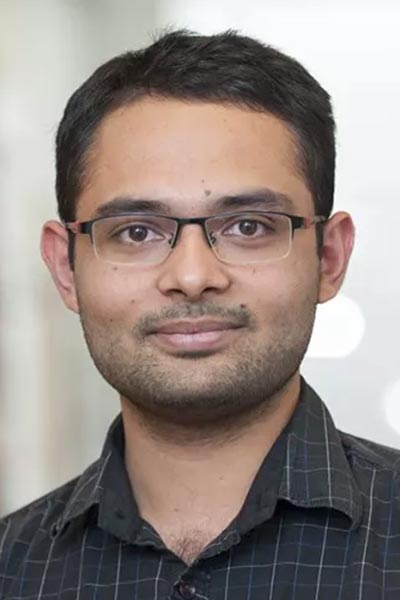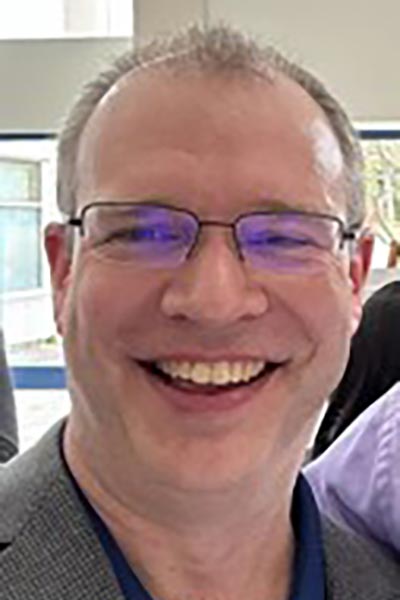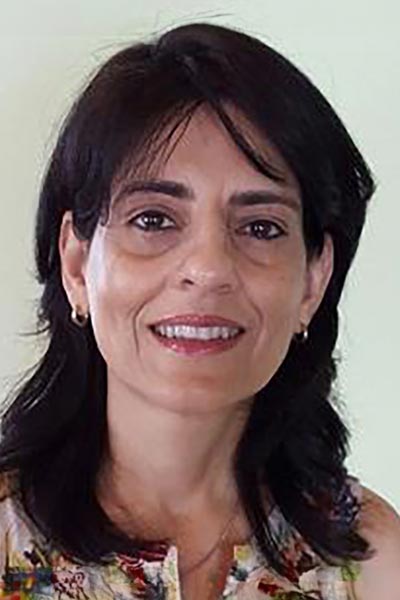First day of Annual Meeting opens with educational sessions and methods workshops
The American Association for Cancer Research Annual Meeting 2024 begins this afternoon, Friday, April 5, with 11 educational sessions and four methods workshops. These sessions are available exclusively to attendees who add the Educational Program Pass to existing and new registrations.
More than 65 live educational sessions and methods workshops continuing through Saturday will cover important and timely topics including artificial intelligence (AI) and data science; their role in genomics, genetics, liquid biopsies, and population sciences; as well as other related areas such as chemistry, pathology, biostatistics, and clinical trial design.

“These topics are essential to cancer research broadening its scope and entering a period of what I think will be unprecedented progress,” said Annual Meeting Education Committee Chair Victor E. Velculescu, MD, PhD, FAACR. “The utilization of AI and large-scale data science in a variety of areas of medicine, including precision oncology, immunology, molecular biology as well as cancer prevention, I think will change the way medicine is understood and practiced.”
The Educational Program also includes sessions on the topic of health disparities, both in clinical trials and translational research, as well as in the context of emerging technologies, Velculescu said.
“The utilization of these tools to improve both research of, and ultimately access to, underserved populations will have a wide-ranging impact on the health of societies worldwide,” he said.
Several highlights from today’s program are listed below. For more details, including the schedule for Saturday’s full day of sessions and workshops, download the Annual Meeting app or visit the online program planner. Registered attendees with the Educational Program Pass will have access to on-demand recordings of all sessions through July 10.

ED50: Evolving Insights on the Microbiome in Cancer
Friday, April 5, 3 – 4:30 p.m. PT
Room 30, Upper Level, Convention Center
Session Chair: Ami S. Bhatt, MD, PhD, Stanford University
While links between the gut microbiome and cancer outcomes have been established, the specific mechanisms underlying these associations remain poorly defined. This gap represents a major barrier to translating microbiome research into clinically actionable biomarkers and therapies.
This session will highlight cutting-edge genomic, immunologic, and translational studies that are dissecting the mechanistic interplay between the microbiome and cancer development, progression, and treatment response. Speakers will present metagenomic and functional data illuminating how microbiome-derived signals influence and modulate native and adaptive anti-tumor immunity. Collectively, these findings provide an updated conceptual framework for defining microbial contributions to cancer progression and treatment response. Unraveling these mechanisms is crucial for realizing the transformative potential of microbiome-based precision oncology approaches.

MW01: A Preview into Single-cell Data Analysis for Bench-based Scientists
Friday, April 5, 3 – 4:30 p.m. PT
Ballroom 6 A, Upper Level, Convention Center
Workshop Chair: Roshan Sharma, PhD, Memorial Sloan Kettering Cancer Center
Single-cell sequencing technologies have empowered the study of biology at unprecedented scale and precision. As the throughput of these technologies and the number of molecular modalities that they assay continue to grow, datasets are becoming larger and more complex, necessitating novel statistical tools to analyze the data efficiently. Bench-based and clinical scientists should understand how to use the latest analysis methods to effectively interpret their data, extract novel insights, and apply biological intuition to guide analysis. Moreover, it is important to avoid common misconceptions and statistically questionable practices that have been propagated in the field.
This workshop introduces the analysis of single-cell RNA sequencing data and provides guidelines for a bench scientist to begin analyzing their own data. Presenters will cover state-of-the-art methods and best practices for data normalization, visualization, clustering, and cell typing. All code used in the workshop will be made freely available so that participants can adapt it for their own setting.

ED04: Chemistry to the Clinic Part 1 of 3: Targeted Protein Degraders — Delivering Degraders to the Site of Action
Friday, April 5, 4:45 – 6:15 p.m. PT
Ballroom 6 B, Upper Level, Convention Center
Session Chair: Keith R. Hornberger, PhD, Arvinas, Inc.
Targeted degradation of disease-causing proteins with heterobifunctional small molecules has seen significant interest as a new option to target cancer, with several agents now in or approaching late-stage clinical trials. These agents may have advantages over traditional small molecule inhibitors due to their elimination, rather than inhibition, of disease-causing proteins, ability to disrupt scaffolding functions, potential to act on classically “undruggable” targets, and iterative/catalytic mechanism of action. However, there are also specific challenges with systemic delivery of heterobifunctional degraders. First, such degraders exist in a chemical property space beyond that typically associated with orally bioavailable drugs. Second, for wild-type proteins, narrow therapeutic windows may emerge from broad, systemic degradation.
This session will discuss approaches to oral and CNS delivery of heterobifunctional degraders, alongside an overview of potential mechanisms for delivery to specific tissues, cells, or intracellular compartments. Presenters will highlight antibody-degrader conjugates (ADCs) in particular, given their high potential for near-term clinical translation.

MW06: Clinical Trial Design Workshop, Part 1: Increasing Racial and Ethnic Diversity in Clinical Trials — New Solutions for Old Problems
Friday, April 5, 4:45 – 6:15 p.m. PT
Ballroom 6 CF, Upper Level, Convention Center
Workshop Chair: Susan Halabi, PhD, Duke University
Despite ongoing efforts, research consistently reveals that less than 5% of adult cancer patients participate in clinical trials, a figure that has remained largely unchanged over decades. This stagnation can be attributed to a myriad of barriers including demographics, socioeconomic factors, physician attitudes and knowledge, overly restrictive inclusion/exclusion criteria, lack of protocols, and patient apprehensions such as mistrust and fear.
This session will delve into the current landscape of patient enrollment in clinical trials sponsored by the NCI, not-for-profit entities, and industry. Additionally, speakers will explore documented barriers that hinder participation, aiming to identify strategies to improve access to clinical trials and diversify participation. Presentations will illustrate how strategies to overcome enrollment barriers have yielded positive results, ultimately helping to ensure that all individuals have an opportunity to benefit from investments in cancer research.
More from the AACR Annual Meeting 2025
View a photo gallery of scenes from Chicago, continue the conversation on social media using the hashtag #AACR25, and read more coverage in AACR Annual Meeting News.

